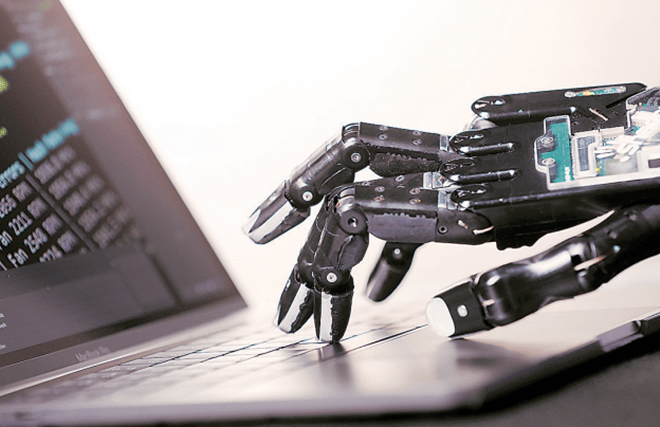Enterprises worldwide are engaged in digital transformation and leaders of the future will have mastered the new forms of organisation design in a digital world. As enterprises embrace digital technologies and redefine the value they could offer to their customers, leaders need to be mindful of the significance of the enormous volumes of data that would be used and get generated through the multiple touch points created by digital systems. Successful business models will be centered around data, harnessed through cognitive tools leading to insights and a combination of insights with new engagement mechanisms leading to new knowledge.
The ability to tap and apply the knowledge through such efforts wisely will create future winners in the marketplace. The traditional models focused on codifying knowledge nuggets derived from processes and projects. It encouraged stakeholders to share tacit and explicit knowledge thus building knowledge repositories that could provide access to organisation knowledge to all stakeholders connected with the business.
With the availability of digital tools, a three-tier system of recording data, deriving insights and developing engagements with the stakeholders has started gaining momentum. Several new and existing businesses have demonstrated enhanced customer experience or productivity resulting from integration with the digital ecosystems. The success in each of these cases is their ability to reorient the organisations around the ability to access and analyse the data and use these insights to transform the way businesses are able to function.




The potential advantages arising out of data is driving the investment decision towards IoT, Robotics, Artificial Intelligence (AI) and embedded systems which are throwing up a variety of data leading to exhaustive analytics. The knowledge base that the organisation is able to create through the insights drawn from predictive and prescriptive analytics is exciting. It is adding quantifiable value to the business unlike in the past when it was a challenge to correlate the direct contribution of data to business outcomes and attribute a value to it. Structured and unstructured data available are not only accessible by interested stakeholders for addressing operational issues but can be used to build scenarios and simulate possibilities, thus making organisations better prepared to deal with the changes in the market place and precision in decision making.
With the deep insights made possible through access and analysis of data, there are new exciting possibilities to engage with each of the stakeholders—be they employees, customers or partners. New knowledge derived helps to produce distinctive products, processes or services to create delight for the stakeholders. The scope and impact of engagement are enhanced and the issues around ownership of data, the intellectual property rights and privacy also require to be addressed as these could be pivotal in the success of future businesses.
Owing to the heightened importance of data for building the future organisation framework, it is important to harness the data using appropriate technologies. This involves multiple steps starting with the definition of data, capturing the data, accessing the data in multiple combinations with ease, analysis as required and systematic storage of data. Thus it would be noted that the data management process has become complex and therefore organisations need to have a strategy around data management and identify technology platforms that suit the business requirement.
Extraction of data therefore is not only from the every day transactions but has to be geared to focus on the emerging phenomenon of AI too. The impact of AI is being experienced by industries and individuals connected to the digital system in one form or the other. Until now businesses have been dependent on individuals for harnessing their knowledge and building knowledge repositories for supporting the business in future.
AI and machine learning are not only now capable of tapping the minds of employees but also patterning their behaviour and are also capable of predicting scenarios and actions thereof. While the cognitive systems can be trained to respond to complex problems and even situations with ambiguity, they should be viewed as necessary support for augmenting the knowhow rather than replacing the function or lose the human touch. AI brings in a new dimension of knowledge to businesses whose boundaries and scope of impact can be defined by humans alone. Defining and managing these trajectories as well as redefining the boundaries of human knowledge and productivity as a result, become challenging. AI capabilities required to develop talent and organisational knowledge feed on one another and their effective combination would be important to make the talent available with the organisation more empowered.
While businesses may be creating intelligent systems to aid in their respective functions, it is important to create linkages of data, knowledge and business need and redesign the systems such that they are able to deal with dynamic situations and address the emerging demands of the organisation. The traditional production thinking would have to make way for design thinking. The requirement is for more and more interdisciplinary skills along with analytical competencies that are becoming critical for every job. The leadership challenges will include the organisation’s ability to nurture the right talent and foster suitable culture for the digital era to encourage employees to upskill and adapt to the changing times.
The writer is CEO, Global Talent Track, a corporate training solutions company





















